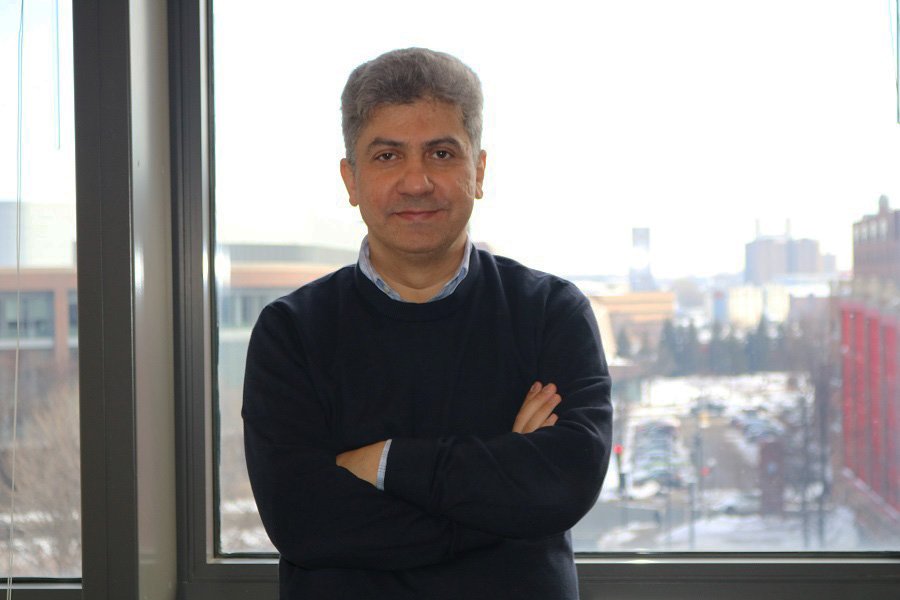Professor Mohammad Maddah-Ali elevated to IEEE Fellow

Professor Mohammad Maddah-Ali was recently elevated to Fellow of the IEEE. The honor recognizes his “contributions to information theory for interference management, coded caching and computing.”
Maddah-Ali’s work in the area of information theory has brought about groundbreaking innovations that have had direct impacts on wireless communication, content delivery networks, and distributed computing and learning, and initiated extensive research activities in those areas. His contributions, particularly interference alignment, coded caching, and coded computing, have been significantly influential for their theoretical implications and practical applications.
As a doctoral student, Maddah-Ali developed the concept of interference alignment (IA). Designed to provide interference-free communication, it entails different interfering signals at each receiver to be aligned to minimize their overall footprint. IA is a compelling improvement over the options (current at the time) of either splitting network resources, or cooperation among transmitters or receivers. His demonstration of using outdated channel state information (CSI) for interference management is yet another outstanding contribution that has allowed for advancements in information theory and wireless communication. His innovations has also ultimately led to improvements in areas such as distributed storage, distributed computing, and private information retrieval.
Yet another leading-edge contribution by Maddah-Ali is coded caching and using coding for reliable distributed computing. In an award winning paper presented in 2014, he introduced the concept of coded caching. Designed to provide significant improvements in performance by planning and exploiting cached content to create specific coding opportunities, it overcomes the inefficiencies of delivery networks designed to increase hit rates. As network size increases, the gains from coded caching also increase (unlike the gains from optimizing hit rates) making it particularly useful for large and growing networks. The potential of coded caching has far-reaching significance, and companies such as Nokia, Ericsson, and Samsung have also taken up work on it. Maddah-Ali is also a pioneer for using coded redundancy to improve reliability and security in distributed computing.
Maddah-Ali’s papers presenting his original ideas and contributions have been widely recognized and have received several awards. In 2017 he received the IEEE Jack Keil Wolf ISIT Student Paper Award at the IEEE International Symposium on Information Theory (exact rate-memory tradeoff for caching). His work on coded caching was recognized with the 2016 IEEE Information Theory Society Paper Award, one of the most prestigious awards with a 70 year history in the area. In 2015 he was the recipient of IEEE Communications Society & Information Theory Society Joint Paper Award for his ground breaking work on using outdated CSI for interference management, and in 2014 he received the Best Paper Award at IEEE International Conference on Communications (ICC) (online coded caching).
Professor Mohammad Maddah-Ali joined the Department of Electrical and Computer Engineering in 2022 as an associate professor. He earned his doctoral degree from University of Waterloo, Canada in 2007 which was followed by a two year stint as a postdoctoral fellow at the University of California, Berkeley. He has also served as a scientist with Nokia Bell Labs and Stanford University.